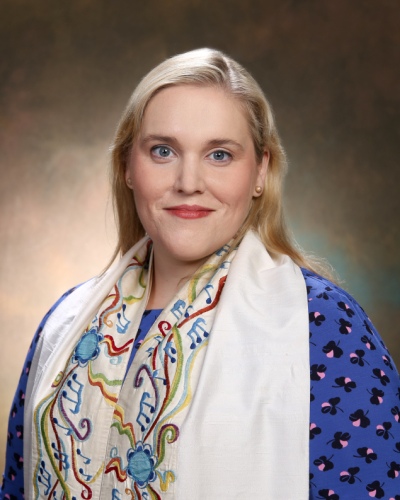Several weeks ago, our Torah portions taught us the laws of the Sabbatical year and the sort of super-Sabbatical, the Jubilee year. During these special years in the Jewish calendar, we allow things to rest and be renewed. In the Sabbatical year, we allow the Land a period of time to go fallow, and in the Jubilee year, all slaves are freed and ancestral land holdings are returned to their original owner.
Clergy and academic professions maintain this notion of the sabbatical year. Depending on the terms of the individual institution, that clergy person or professor might be entitled to a few weeks, months, or even a year on a seven-year cycle to have respite from the demands of the day-to-day work of their calling and, instead, be able to work on a special project of their choosing.
At Temple Beth El, full time clergy are entitled to three months of Sabbatical each seven years of full-time employment. Now, a true sabbatical is far-off for me since I have not yet accrued years towards a sabbatical, as I am contracted to work part-time. Nevertheless, I write to you from the airplane headed towards a sabbatical of a different sort.
The American Conference of Cantors, the ACC, is the professional organization for Reform cantors in North America and world-wide. Each summer, we convene to study, sing, share our work, and share our lives for just a few days. I’m sure that it goes without saying, but this time is invaluable. As one of only several hundred Reform cantors in the world, our network is very small and very dear. We support each other through our rewarding, yet challenging callings and also inspire one another to make better music, lead better prayers, teach better classes, and be more deeply present.
In the fashion of a sabbatical, the ACC holds this annual convention in Israel every seven years. In this case, the call is not to let the Land rest from its work, but for cantors to return to the Land and renew their connection to our language, our people, and our music for one week.
The last time that the ACC convention was in Israel, I was in Israel, too, on the first year of our five-year seminary program. (In a bizarre scheduling blip that I do not understand, this was actually eight years ago. We do not recall why the seven year Israel conference interval was pushed to eight this past time…)
In the summer of 2006, I left Charlotte, my home for three years and Matthew, my husband for only slightly more time than that, and headed off to a year of study living with new classmates in Jerusalem. During that year, I flew back and forth six times to nurture my marriage and to see my grandfather in what would be the last year of his life, alav hashalom – peace be upon him. I became an expert in navigating the 6000 mile flight – 10 hours one way, 12 the other – and an expert in navigating multiple worlds, multiple lives, multiple languages. That was the very beginning of Facebook and Skype, thank goodness, so I think I was able to be more connected at home than I would have in previous years.
Preparing for this trip over the last few days, I have become distinctly aware of the passage of time. Johannah, who is closer to four-years-old than three these days, and I have been talking about this trip to prepare her for me to be away for so long. She understands that she is too little to come this time, but I’ve promised her that in seven years, when the ACC convention is in Israel again, she and her brother and her dad will all come with me. She will be ten then. And for two weeks, she has reminded me that when she is ten-years-old, she will get to come with me to Israel.
So here I sit in hour seven of this ten-hour flight, poised between two worlds: the memories of me at 25 out on my own for a Jewish adventure at the beginning of my career, and the promise made to a little girl that in seven more years, Matthew and I will introduce our children to beloved Israel. And, at this moment, those dear ones are far away.
It is a wondrous thing to have markers in our lives: birthdays, anniversaries, and holidays. These stopping points are moments of reflections where we assess what has transpired in the year gone by and likely set goals and dream about the year ahead. The sabbatical year, however, gives a bizarre mid-range vantage point over the landscape of one’s life.
Seven years is just long enough for everything in a life to change. For me, in the past seven years I have lost my grandfather, completed graduate school, become a cantor, had two children, and most recently, lost Matt’s mom. When I look at recent photos of myself, I see the weariness that comes with parenting small children and the wisdom that comes with responsibility. When I look at pictures from the last time I was in Israel, I see a very young woman and I remember my naiveté and the conviction that if I just worked hard enough, everything will be alright.
Sometimes, things will never be right again.
While I sat in the airport in Charlotte Monday afternoon, the world learned that three kidnapped Israeli boys had been murdered in cold blood by their captors. Their bodies had been found partially buried beneath some rocks.
I, and all of the people of Israel, wept for these mothers and fathers, whose seven-year dreams for their children might have been to be doctors, lawyers, or fathers. We wept for these boys whose own long-term dreams were snuffed out like a candle.
Sometimes, things will never be right again.
Sigh.
My view is not so pessimistic, really. I continue to be, though older and more worn, filled with the profound hope that through hard-work and perseverance, most things will be OK. Even for the families of Ayal, Gilad, and Naftali, in time I pray that they find comfort in their community, in our traditions, and in the memories of their sons. Though this time may tarry, I pray that it will be theirs.
It is a wondrous and dangerous thing to have the vantage point of the sabbatical, the view from the air. It gives time to take stock of seven years passed and dream of what might be for seven years future.
Yet, I am reminded of the Yiddish proverb, “Man plans and God laughs.” it is the Creator who has the real vantage point, able to know the twists and turns of our choices just out of our own sight lines. It is the Source who knows how quickly the tide can turn, for better or for worse.
As for us, let us hope and plan and dream, yet know that ultimately there is so very much in life that is beyond our control. May we build strong ties to community and loving relationships that will carry us through the smoothest skies and the most turbulent storm.





